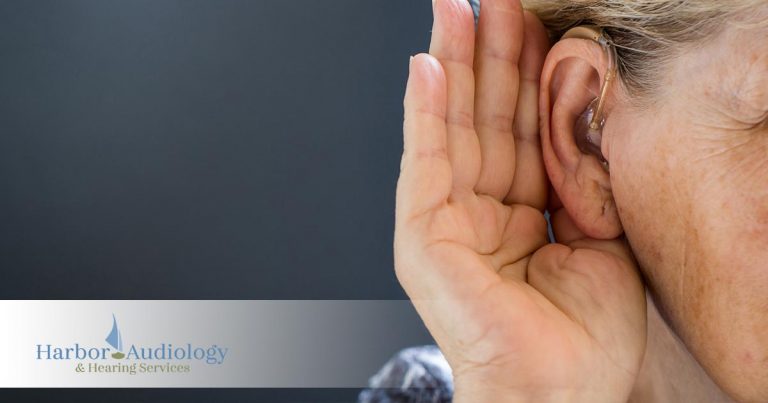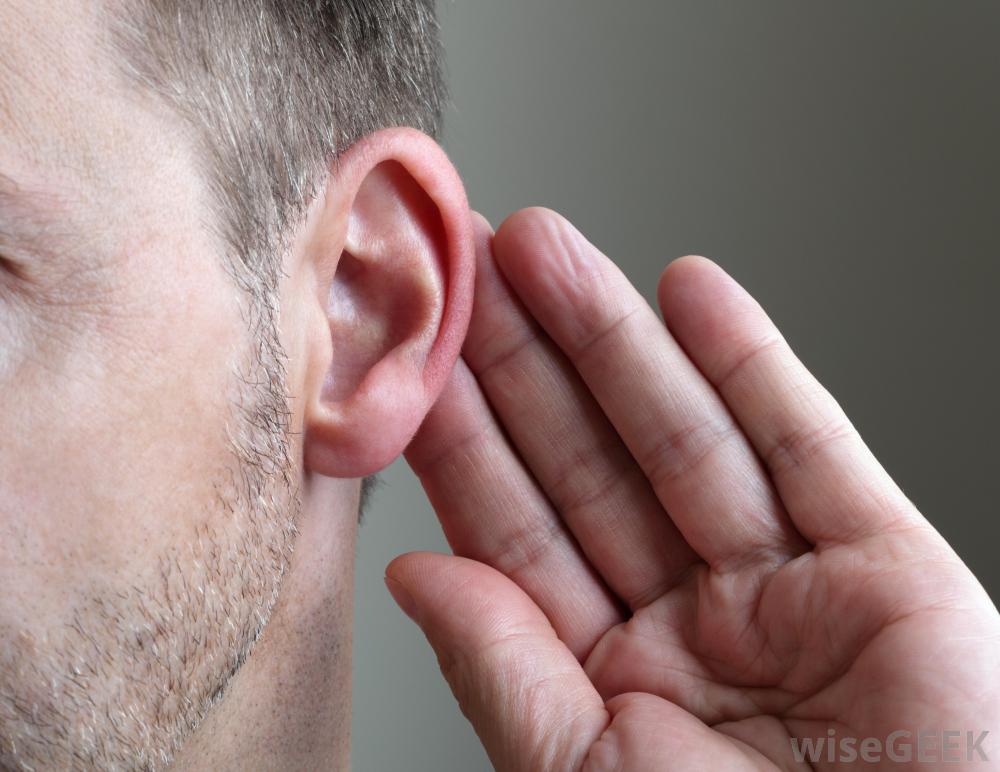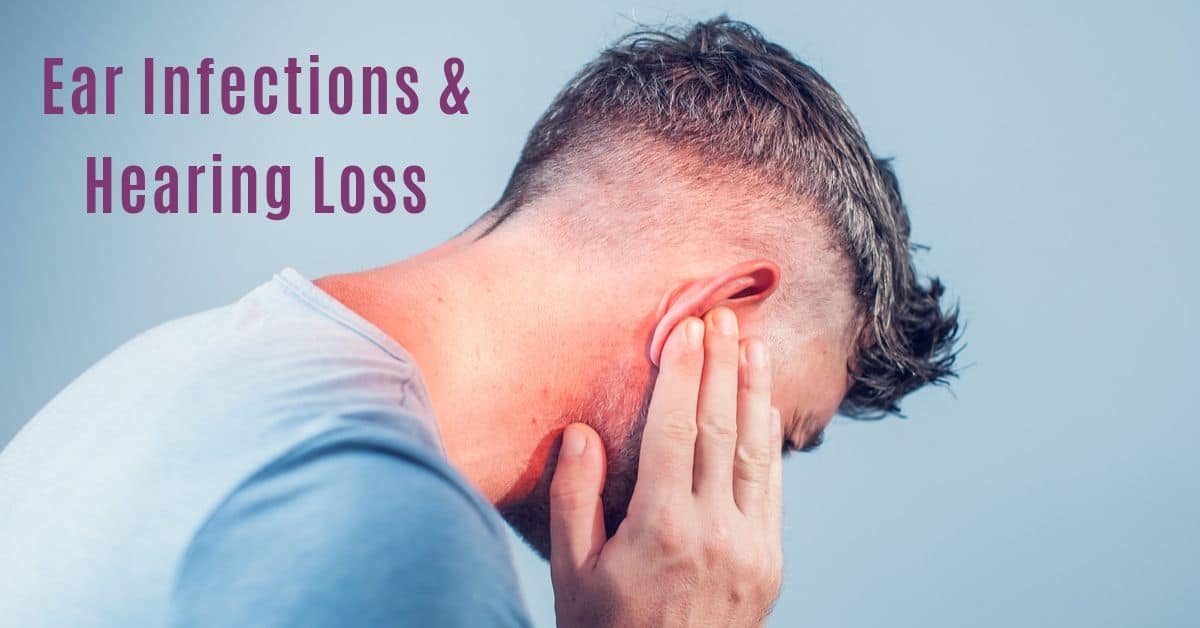Where Is The Middle Ear
The middle ear is behind the eardrum and is also home to the delicate bones that aid in hearing. These bones are the hammer , anvil and stirrup . To provide the bigger picture, lets look at the whole structure and function of the ear:
The ear structure and function
There are three main parts of the ear: outer, middle and inner.
- The outer ear is the outside external ear flap and the ear canal .
- The middle ear is the air-filled space between the eardrum and the inner ear. The middle ear houses the delicate bones that transmit sound vibrations from the eardrum to the inner ear. This is where ear infections occur.
- The inner ear contains the snail-shaped labyrinth that converts sound vibrations received from the middle ear to electrical signals. The auditory nerve carries these signals to the brain.
Other nearby parts
- The eustachian tube regulates air pressure within the middle ear, connecting it to the upper part of the throat.
- Adenoids are small pads of tissue above the throat and behind the nose and near the eustachian tubes. Adenoids help fight infection caused by bacteria that enters through the mouth.
Otitus Media What Is It
Simply put, otitis media is an infection of the middle ear. It could possibly be any kind of microorganism causing the infection however bacteria is the most common.
The main way an infection is specified is by what part of the ear it occurs in. When the infection is in the pinna, or outer ear, or in front of the eardrum, the condition is otitis externa or swimmers ear. If the bacterial growth occurs in the cochlea, the medical term is labyrinthitis or inner ear infection.
The middle ear is comprised of the space behind the eardrum but in front of the cochlea. The membranes of the inner ear are vibrated by three little bones called ossicles which are located in this area. The eardrum will often actually break because of the pressure from this sort of infection, which is likely to be quite painful. This pressure is not only very painful, it causes hearing loss. The ear canal can be blocked by infectious material which can then cause a loss of hearing.
A middle ear infection includes the following symptoms:
- Ear drainage
- Pain in the ear
- Diminished ability to hear
Usually, hearing will return eventually. The ear canal will then open up and hearing will return. The infection gets resolved and your hearing comes back. Sometimes there are complications, though.
Are My Ears Still Clogged After Ear Infection
Clogged ears from a mild ear infection usually last one or two weeks. If the problems are in the inner ear, this could last longer. Mild ear infections clear up by themselves, and you can alleviate the pain with painkillers such as ibuprofen or acetaminophen, ear drops, or simply by applying a warm cloth to your ear.
Read Also: How Do You Sign Merry Christmas
Symptoms Of A Middle Ear Infection
In most cases, the symptoms of a middle ear infection develop quickly and resolve in a few days. This is known as acute otitis media. The main symptoms include:
- a lack of energy
- slight hearing loss – if the middle ear becomes filled with fluid
In some cases, a hole may develop in the eardrum and pus may run out of the ear. The earache, which is caused by the build-up of fluid stretching the eardrum, then resolves.
Can Ear Infections Cause Permanent Deafness

Ear infections are a common childhood malady. Fortunately, infections usually dont cause permanent damage in children or adults. If hearing returns to normal after treatment, the risk is lower for permanent deafness. You should discuss any concerns with your doctor. If there is temporary loss, you may be able to use a device to treat the condition until hearing returns.
To prevent recurrent ear infections, wear swim ear plugs when in the water. Dont smoke and limit your and the childs exposure to secondhand smoke. Try to prevent colds and flu, by following good hygiene. Get your flu vaccine. Ask your doctor about using antihistamines to prevent allergies from causing fluid in the ear.
Read Also: Cleaning Guinea Pig Ears
How Long Will Hearing Loss From An Ear Infection Last
Usually, the hearing loss that develops from a middle ear infection is temporary. Once the fluid drains out of the middle ear, it no longer inhibits the transmission of sound vibrations.
But the fluid can linger for some time. While the symptoms of a typical case of otitis media will usually begin to resolve within about 48 to 72 hours, the fluid thats built up in the middle ear may linger for as long as 3 months. You may have trouble hearing clearly while the fluid remains trapped.
If The Symptoms Are Mild Why Should I Worry About Omicron
While Omicron may feel more like a cold to many of us, it can still hospitalize and ultimately, kill and leave people suffering with long-term symptoms that disrupt their day-to-day lives.
Also, the fact that Omicron is much more infectious than Delta, means it can spread quicker and when cases are really high, large numbers of people will have to isolate at home for days, something that is already having a significant impact on the economy and public services in the UK.
Don’t Miss: Sign Language Hungry Baby
What Is Otitis Media
Put simply, otitis media is an infection of the middle ear. It could be any kind of microorganism causing the infection but bacteria is the most common.
Ear infections are defined by where they occur in the ear. When the infection is in the pinna, or outer ear, or in front of the eardrum, the condition is otitis externa or swimmers ear. If the bacterial growth is in the cochlea, the term is labyrinthitis or inner ear infection.
The middle ear consists of the space behind the eardrum but in front of the cochlea. This area houses the three ossicles, or tiny bones, that vibrate the membranes of the inner ear. An infection in this area tends to be very painful because it puts pressure on the eardrum, usually until it breaks. That pressure is also why you cant hear very well. The infectious material builds up and blocks the ear canal enough to interfere with the movement of sound waves.
The symptoms of a middle ear infection in an adult include:
- Drainage from the ear
- Ear pain
- Diminished hearing
For most people, hearing returns over time. The pressure dissipates and the ear canal opens up. The infection gets resolved and your hearing comes back. There are exceptions, though.
Dont Miss: What Does Ringing In My Ear Mean Spiritually
Why Am I Still Deaf After Ear Infection
Chronic ear infections can cause conductive hearing loss. When this happens, the sound waves going to the inner ear are not strong enough. The ear has mechanisms along the canal that amplify the sound wave so by the time it reaches the tiny hair cells of the inner ear, it is strong enough to create a vibration.
You May Like: Asl Im Sorry
What Can I Do To Feel Better
At home, follow your doctor’s directions for using ear drops and take all doses of antibiotic medicine as prescribed. Keep taking these for all days of treatment, even if you start to feel better. If you stop too soon, the infection could come back.
You can take acetaminophen or ibuprofen for ear pain. If they don’t help, let your doctor know. You’ll only need pain medicine for a day or two until the ear drops and antibiotics begin to work.
To protect your ear while it heals, your doctor will probably tell you to keep your ears dry for several days or weeks even while showering or shampooing! This can be tough, but your doctor can give you suggestions on how to do this, such as using a cotton ball covered in petroleum jelly as an earplug.
Can This Permanent Hearing Loss Be Prevented
If you believe that you might have an ear infection, see a doctor as soon as possible. The sooner you get treatment, the better. Always have chronic ear infection checked out by a doctor. The more serious the infections you have, the more damage they cause. Ear infections typically begin with allergies, sinus infections, and colds so take steps to avoid them. Its time to stop smoking because it causes chronic respiratory issues which can, in turn, lead to ear infections.
If youve had an ear infection and are still having trouble hearing, call your doctor. It is possible you have some damage, but that is not the only thing that can cause conductive hearing loss. Hearing aids are very helpful if you have permanent hearing loss. To get more info about hearing aids, schedule an appointment with a hearing specialist.
Recommended Reading: Angels In Sign Language
How To Prevent Temporary Hearing Loss
You can prevent temporary hearing loss by protecting your hearing. This can involve earplugs, regularly getting your ears cleaned, and avoiding ototoxic medications. The most important aspect of preventing hearing loss is avoiding loud noise. While concerts and other events can be fun, they can also do serious damage to your inner ears. Once the damage is done, it cannot be repaired. You only have one set of ears, so its vital that you take care of them. You can protect your ears from noise exposure by:
- Wearing earplugs. You dont have to avoid things like car shows, gun ranges, concerts, and sports games. You just have to wear protection when you go. Make sure to buy a pair of earplugs before you attend these events, and consider investing in a fitted, reusable pair.
- Limit your time at parties and clubs. Loud music is a menace to your ears, and while parties and clubs are very fun, they can deal some serious damage. Depending on the decibel volume, you should limit your time at these places to an hour or two. After that, you should move your fun to a quieter location.
- Take rests. Your ears need breaks, too. If youve had a long day, attended a loud event, or just feel a bit exhausted by noise, dont turn on the television or put on some music. Just enjoy the silence and rest your ears.
How Long Does Hearing Loss Last After A Ruptured Eardrum

Most people in the United States enjoy what might be described as the priceless gift of good hearing. However, more than 200,000 people each year experience a ruptured eardrum . That is usually a temporary condition, but it can also have serious and long-lasting consequences if not treated quickly and properly.
A ruptured eardrum is simply a perforation, or a tear, in the thin skin-like tympanic membrane that separates ones outer ear from the delicate structures of the middle and inner areas. It senses vibrating sound waves and passes the vibrations through the bones of the middle ear. Because these vibrations allow a person to hear, ones hearing will suffer if the eardrum is damaged. It is also a protective device, shielding the inner area from the potential damage of bacteria, water, and foreign objects.
Also Check: What Does It Mean When Your Ears Ring Spiritually
Also Check: Ringing Ears Spiritual Meaning
Get Help With Your Hearing Loss
For great hearing results and exceptional service, contact the professionals at Harbor Audiology & Hearing services with convenient Washington State locations in Gig Harbor, Tacoma, Silverdale, Bainbridge Island, Sequim, and Port Angeles.
We provide expert diagnostic hearing tests, tinnitus treatments, VNG and APD testing and a wide range of hearing aid products. Well make sure youre getting the hearing aid solution thats right for you. With over 20 years experience, you can have confidence in our services. We accept most insurance providers and will work with the VA for Veterans under the Community Care program. So give us a call today to restore the wonderful sounds all around you and live your best life!
Will I Have Permanent Hearing Loss After I Get An Ear Infection
by Conejo Hearing Center, Inc. | Aug 15, 2018 | Hearing Loss Articles
What is usually referred to as an ear infection, is medically called otitis media or AOM. Ear infections are very prevalent after a sinus infection or cold and they not only affect children but adults as well. You can even get an ear infection from a bad tooth.
When you have an infection in the middle ear you will most likely have at least some loss of hearing, but will it go away? The answer to this question might be more challenging than you may think. There are quite a few variables to consider. You should learn how the damage caused by ear infections can end up affecting your hearing.
Don’t Miss: Angel Sign Language
Home Remedies For An Ear Infection
If you or your child has a typical ear infection without severe symptoms, you might try some of these home remedies:
- Pain relievers. A dose of over-the-counter medication such as acetaminophen or ibuprofen can reduce the pain and fever.
- Compresses. Whether you prefer a warm compress or an ice pack, this method is safe for children and adults. You can even alternate them if doing so helps you feel better.
- A change in sleeping position. Try putting extra pillows under your head to help your ear drain when you go to sleep at night.
- Distraction. If your child is really fussy, try a distraction technique to take their mind off their painful ear. A favorite toy, snack, or game might do the trick.
Symptoms Of Ear Infection
Babies and small children might:
- pull or rub their ear
- have a high temperature
- have redness around the ear
- be restless or irritable
- not respond to noises that would normally attract their attention
See your doctor if:
- your child is in pain
- there is discharge from the child’s ear
- your child is unwell or vomiting
- your child can’t hear properly
- there is swelling behind the ear and the ear is being pushed forward
- your child keeps getting ear infections
Read Also: Phonak Icom Pairing
What Are The Causes
Bacteria or viruses in the middle ear cause ear infections.
A person who has, or had, an upper respiratory infection may also develop an ear infection. Ear infections are not contagious. However, the respiratory infections that might accompany an ear infection are.
Enlarged adenoids, which are pads of tissue at the back of the nose, may also contribute to a double ear infection, especially in children.
An infection affecting only one ear may also occasionally develop into a double ear infection.
Hearing difficulties are probably the most common short-term complication of a double ear infection.
A persons hearing will typically return to normal once the infection clears up.
Persistent or recurrent infections can lead to:
- Hearing problems: Permanent damage to structures within the ear can cause hearing loss of varying degrees.
- Ruptured eardrum: A torn eardrum may occur after severe ear infections. It will usually heal within a few weeks.
- Delays in speech and development: Infants and toddlers who experience a prolonged hearing loss may experience delays in their speech and development.
- Spread of infection: As with all infections, there is a risk that a double ear infection will spread to other areas of the body.
Long-term complications following ear infections are uncommon.
How Long Does Hearing Loss Last After An Ear Infection
Ear infections are common in children, but even adults deal with ear infections. Hearing loss from an infection can occur when fluid builds up in the middle ear. This prevents sounds from getting through to the eardrum, which causes auditory loss. This is called conductive auditory impairment, which means that there is an obstruction. When you have hearing loss from an ear infection, it usually isnt permanent. However, there are a lot of factors that can influence how long the impairment lasts.
Don’t Miss: How To Sign Poop In Asl
Treatments For Hearing Loss
Treatment for hearing loss depends on what’s causing it.
Sometimes a GP may be able to treat the cause, for example:
- an ear infection might be treated with antibiotics
- an earwax build-up might be treated with ear drops or removed
If your hearing loss is not caused by something a GP can treat, they may refer you to a hearing specialist for further tests and treatment.
What Are Other Causes Of Ear Pain

Other causes of ear pain include:
- A sore throat.
- Teeth coming in in a baby.
- An infection of the lining of the ear canal. This is also called swimmers ear.
- Pressure build up in the middle ear caused by allergies and colds.
Last reviewed by a Cleveland Clinic medical professional on 04/16/2020.
References
Recommended Reading: Va Ratings For Hearing Loss
How Is Swimmer’s Ear Treated
How doctors treat swimmer’s ear depends on how severe the pain and infection are. For most outer ear infections, they prescribe ear drops containing antibiotics possibly mixed with medicine to help ease swelling. These will fight the infection and help with pain. Ear drops typically are used several times a day for 710 days.
If swelling narrows the opening into the ear, the doctor may clean the ear and insert a sponge called a wick into the ear canal. It will carry ear drops into the ear more effectively. If you have a severe infection, you might also get antibiotic liquid or pills to swallow. Your doctor may send some of the fluid draining from your ear to a lab to find out which germ is causing the infection.